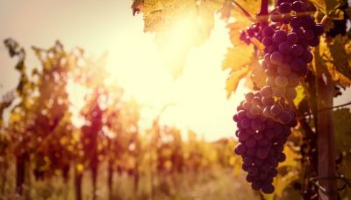
More than 100 properties in
France’s southwest wine-producing area are today owned by Chinese tycoons looking to diversify fortunes built upon real estate, jewellery, industry or tourism holdings.
“The biggest buyers are Chinese and French, with each accounting for around a third of the market,” said Karin Maxwell, from a leading luxury real estate agency in the region, Maxwell-Storrie-Baynes.
Although most of the Chinese owners stay discreet, French wine industry groups are publicly welcoming the new money flowing in.
“It’s reassuring. These purchases lift the profile of the Bordeaux brand and have advanced the vineyard property market, even if there are still vineyards for sale,” said the head of the CIVB Bordeaux wine growers’ association, Bernard Farges.
So far, the Chinese own just 1.5 percent of the 7,000 vineyards in the Bordeaux region. But they started their spree just six years ago, and the last three of those years have seen sustained interest with more than two dozen properties snapped up annually.
One name dominates the list of Chinese arrivals: Qu Naijie, an industrialist with net worth estimated at $800 million who comes from sea transport and theme parks, and owns nearly 30 Bordeaux vineyards.
Keen to own chateaux Part of the appeal for the Chinese is the status that comes with possessing a noble French chateau as part of their wine-growing property.
The chateaux with old towers, extensive cellars, symmetrical architecture and carefully tended gardens are especially sought after.
But the business potential is the key consideration.
China is the biggest consumer of red wine in the world and remains the top export market for Bordeaux, buying 60 million bottles last year.
Heady profits on the back of record sales were had up until 2013. Then last year all Bordeaux producers — the Chinese included — faced a sharp dip, with a sales declining by 17.5 percent and a nine-percent reduction in volume moved.
The slide was imputable to fragile economic growth, an official Chinese crackdown on signs of conspicuous consumption, competition from wine producers in Australia, South Africa, Chile and the United States — and savvier wine-buyers abroad.
“Consumers are no longer willing to buy without checking out prices, and the Internet plays a big role in that,” explained Yiping Cai, founder of a Bordeaux wine export company for China called La Selection.
Industrial techniques With margins falling, Bordeaux’s new Chinese owners are aiming to introduce industrial efficiency and economies of scale to vineyards that used to be small, family-run affairs.
Most of the properties they have pocketed do not make top-of-line ‘grand cru’ wines, but instead produce relatively unknown labels at the cheaper end of the market.
Yet, crucially, they all boast the French government-regulated AOC Bordeaux label that authenticates them as genuine Bordeaux wine: a valuable reputation in a crowded marketplace.
Bordeaux is “a brand leader in the world and thus easier to sell,” said Yannick Evenou, who runs several vineyards for a major Chinese investor, Frank Yu.
Yu and the other Chinese investors are spending big to bring several properties together, each generally worth between five million and 15 million euros. They then do away with traditional techniques to use technology to handle big volumes aimed for export.
While the changes wrought by the Chinese to Bordeaux production might raise some purists’ eyebrows, those in the region note that foreigners have always brought innovation with them.
“Bordeaux was built up over centuries with foreign investors: first the English, then the Dutch, the Belgians, the Japanese, and today, the Chinese,” said Laurent Gapenne, of the Bordeaux fine wines federation.
“Everybody is overjoyed that the Chinese are interested in wine growing. This proves that Bordeaux retains its predominance over the others,” he added.
 More than 100 properties in France’s southwest wine-producing area are today owned by Chinese tycoons looking to diversify fortunes built upon real estate, jewellery, industry or tourism holdings.
More than 100 properties in France’s southwest wine-producing area are today owned by Chinese tycoons looking to diversify fortunes built upon real estate, jewellery, industry or tourism holdings.